"Another round of dialogue possible after April 2"
Serbian president's dvisor Marko Đurić has said that another round of the dialogue between Belgrade and Priština was possible after that scheduled for April 2.
Wednesday, 27.03.2013.
20:50

BELGRADE Serbian president's dvisor Marko Djuric has said that another round of the dialogue between Belgrade and Pristina was possible after that scheduled for April 2. Serbia understands the time restrictions that are due to the fact that a report on Serbia's progress in European integration is coming soon, he stated on Wednesday, but stressed that no deadlines should be allowed to compromise the quality of solutions that need be reached. "Another round of dialogue possible after April 2" Asked by Tanjug if Belgrade is ready to sign any document as may be required by part of the international community given that a solution acceptable to both parties is reached during the Belgrade-Pristina talks, Djuric said that “the form of reaching an agreement has yet to become a subject of discussion” and that Belgrade expects to see far greater flexibility shown, especially by Pristina, in the new round of talks. If it happens that the next or the next two rounds yield no agreement, the Serbian side will not give up, confident that agreement has no alternative and that only by a rational approach can we come to a compromise, he said. “We believe it would be irrational to throw away the process that has managed to bring the two sides somewhat closer over the past eight months, although the Pristina side proved to be insufficiently willing to compromise,” Djuric said. The dialogue must continue until a solution is found that will satisfy the interests of both parties, said Djuric. The presidential advisor, who is also one of the participants in the Brussels-based dialogue, pointed out that the Serbian delegation is prepared for the new round of talks with Pristina and is going ready to agree precise responsibilities to be borne by a community of Serb municipalities and to put forward its views concerning all the relevant unofficial (non-paper) agreements. Asked if a new document or a sort of annex to the Serbian president's platform on the Kosovo issue has been prepared, Djuric said Belgrade “will be fully prepared to elaborate on every aspect concerning the management of the community of Serb municipalities when we meet with the representatives of Pristina and the EU.” Djuric pointed out that the arguments Belgrade will present work in favor of the community of Serb municipalities while not threatening the position of Pristina. He said that the arguments prepared concern a range of issues, including questions such as whether the community will have its own jurisdiction or will be exercising only municipal responsibilities it is entrusted with; whether it will have its own bodies for the implementation of these responsibilities and an assembly exerting some sort of oversight of the executive; and whether the community will have its own property. The way a mechanism for the participation of Serbs in the work of the central government in Pristina is worked out is also of vital importance, just as it is important to know whether and in which way any possible agreement would deal with the situation concerning the judiciary and the police issues. Djuric cited President Nikolic as saying that Belgrade should insist on not allowing any armed forces managed by Pristina to stay in the territory of the community of Serb municipalities for a long time. According to Djuric, Nikolic put forward a solution under which “the security forces, or paramilitary groups, which represent a kind of embryo to develop into armed forces of the so-called Republic of Kosovo, are simply not to be allowed access to the territory populated by Serbs, for fully obvious reasons.” He added that so far, the international community has not voiced any objections to the proposal, but these issues need to be discussed with Pristina first. Marko Djuric (Tanjug, file) Tanjug
"Another round of dialogue possible after April 2"
Asked by Tanjug if Belgrade is ready to sign any document as may be required by part of the international community given that a solution acceptable to both parties is reached during the Belgrade-Priština talks, Đurić said that “the form of reaching an agreement has yet to become a subject of discussion” and that Belgrade expects to see far greater flexibility shown, especially by Priština, in the new round of talks.If it happens that the next or the next two rounds yield no agreement, the Serbian side will not give up, confident that agreement has no alternative and that only by a rational approach can we come to a compromise, he said.
“We believe it would be irrational to throw away the process that has managed to bring the two sides somewhat closer over the past eight months, although the Priština side proved to be insufficiently willing to compromise,” Đurić said.
The dialogue must continue until a solution is found that will satisfy the interests of both parties, said Đurić.
The presidential advisor, who is also one of the participants in the Brussels-based dialogue, pointed out that the Serbian delegation is prepared for the new round of talks with Priština and is going ready to agree precise responsibilities to be borne by a community of Serb municipalities and to put forward its views concerning all the relevant unofficial (non-paper) agreements.
Asked if a new document or a sort of annex to the Serbian president's platform on the Kosovo issue has been prepared, Đurić said Belgrade “will be fully prepared to elaborate on every aspect concerning the management of the community of Serb municipalities when we meet with the representatives of Priština and the EU.”
Đurić pointed out that the arguments Belgrade will present work in favor of the community of Serb municipalities while not threatening the position of Priština.
He said that the arguments prepared concern a range of issues, including questions such as whether the community will have its own jurisdiction or will be exercising only municipal responsibilities it is entrusted with; whether it will have its own bodies for the implementation of these responsibilities and an assembly exerting some sort of oversight of the executive; and whether the community will have its own property.
The way a mechanism for the participation of Serbs in the work of the central government in Priština is worked out is also of vital importance, just as it is important to know whether and in which way any possible agreement would deal with the situation concerning the judiciary and the police issues.
Đurić cited President Nikolić as saying that Belgrade should insist on not allowing any armed forces managed by Priština to stay in the territory of the community of Serb municipalities for a long time.
According to Đurić, Nikolić put forward a solution under which “the security forces, or paramilitary groups, which represent a kind of embryo to develop into armed forces of the so-called Republic of Kosovo, are simply not to be allowed access to the territory populated by Serbs, for fully obvious reasons.”
He added that so far, the international community has not voiced any objections to the proposal, but these issues need to be discussed with Priština first.















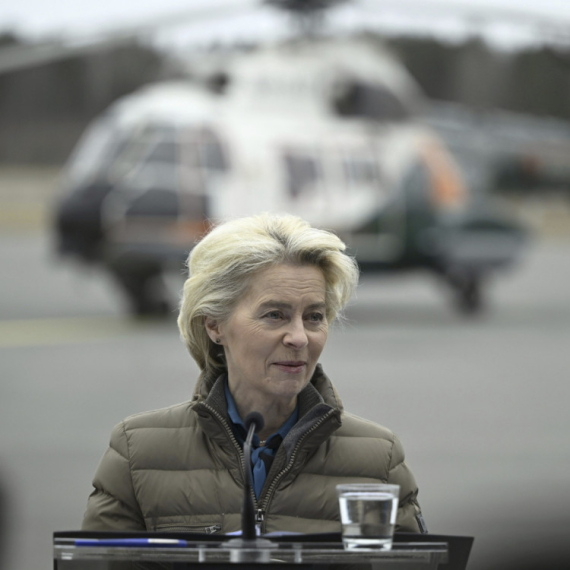
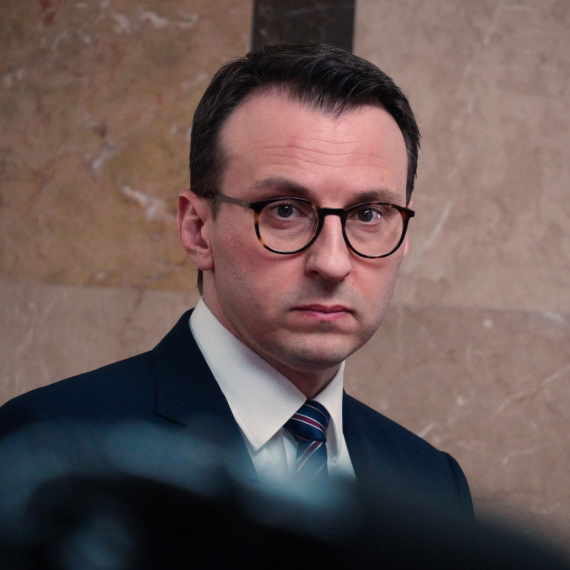

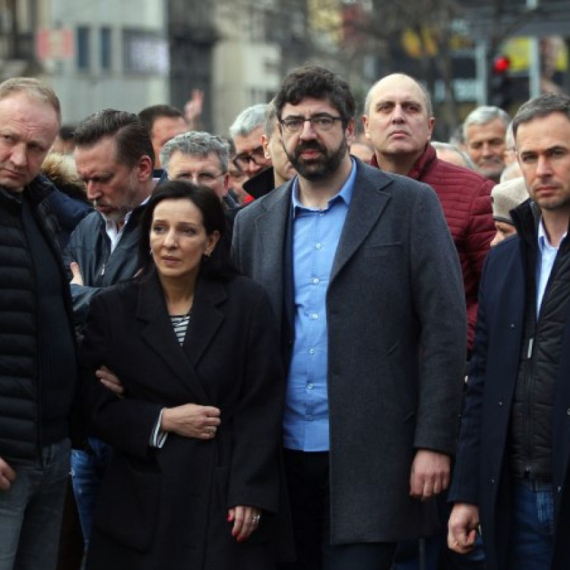





































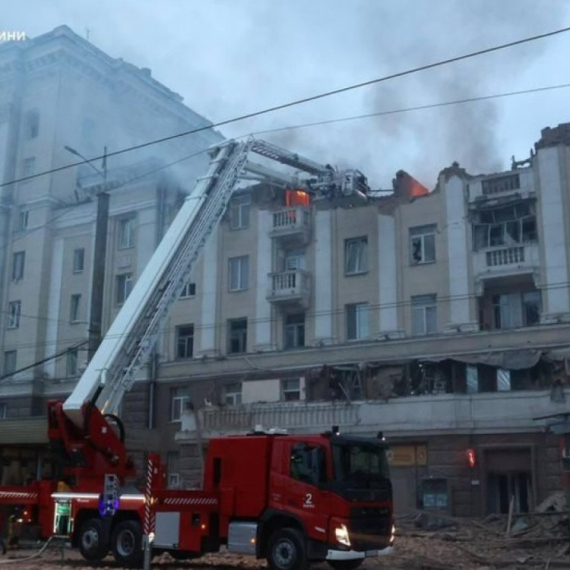
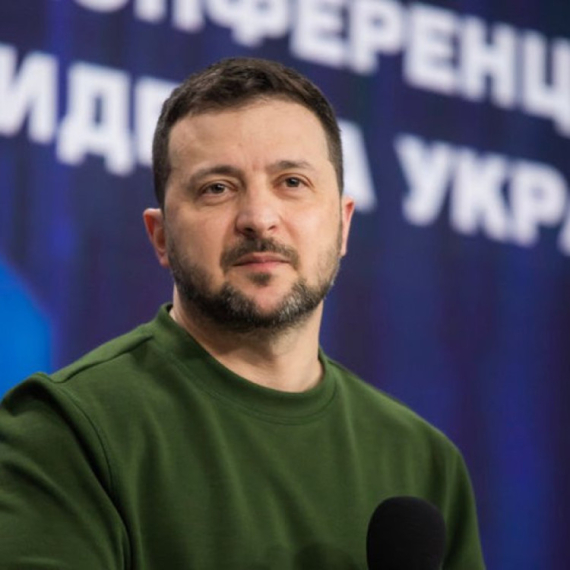

Komentari 3
Pogledaj komentare